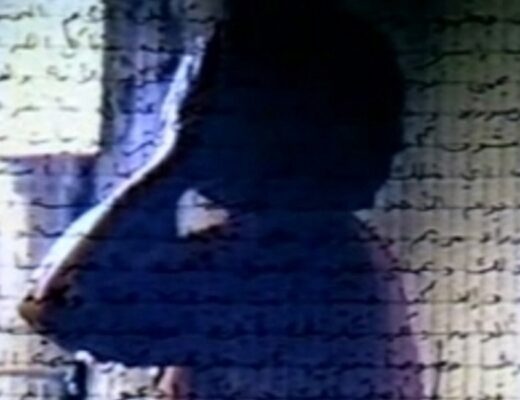Today we understand the university to be a uniquely reactive flashpoint for the major social, political, and generational battles defining the contemporary world. Yet in our cultural imaginations, there still endures the idea of the academy as a quieter, closed system, a world unto itself. Director Liu Jian’s latest animated effort, Art College 1994, sets its story on the campus of the Chinese Southern Academy of the Arts just as spring is blooming. We encounter a collection of students, each wrestling with their own identities and ideals as they sense the shifting complexion of life beyond their bubble.
Most immediately captivating is the film’s gorgeously realized world. Art College 1994 enhances the 2D hand-drawn animated style recognizable in Jian’s other notable works Piercing I (2010) and Have a Nice Day (2017). Working with a team of teachers and students at the China Academy of Art’s School of Animation and Game, Jian and company achieve a painterly neorealism. A deeply studied sense of time and place is made tangible through the textures, bringing the windswept grasses, chipping walls, mossy rocks, oils and dyes, and lit cigarettes to vibrant life. Nearly every scene beckons the viewer to look as if it were a still life in a gallery. To experience the depth and substance of the visual environment with such stark clarity is to be submerged in its powerful geometries and, in a way, to be almost as overwhelmed by this world’s vastness as the very characters who inhabit it are. The human characters, by contrast, are composed in simpler styles than their surroundings, appearing almost superimposed onto this reality instead of existing within it. In a way, the resulting dissonance reflects the narrative’s central mood: the wooziness of displacement, of not quite fitting in or knowing one’s place.
Lacking much in the way of a conventional plot, Art College 1994 is more of a chain of musings and conversations. The central male characters, Zhifei and Xiaojun, discuss art. What is the purpose of art? Who or what decides what can be qualified as art? What separates good art from great art? The central female characters, Hong and Lili, often converse as well, though more often about relationships and personal fulfillment. The men have the privilege of fixating on aesthetics while the women remain crushingly aware of their reality’s gendered expectations. This quartet and some other supporting players don’t so much progress as they fumble forward uncertainly. Often key developments in their arcs occur offscreen as the focus shifts to another corner of campus life, only for us to return to them and their new status quo for the next bout of discourse. In an interview with Asian Movie Pulse, Jian notes that during his days as an art student, discussion of philosophy and literature was quite popular. In so authentically capturing this aspect of his experience, however, the film becomes bogged down, its capsules of contemplative gems and cultural references meshing together into a litany of ponderous prattle at the expense of building more significant connections to the characters and their struggles. Among the film’s strongest scenes are the ones not when someone is evoking Nietzsche or quoting Dostoevsky, but when two characters are engaging each other on a plainly human level, confronting each other’s pains, yearnings, and choices. Perhaps the discreteness of these moments lends them greater impact, yet they feel swallowed by the sea of intellectual noise.
A core tension in Art College 1994 is the struggle between tradition and modernity, which, in some respects, manifests as anxiety around encroaching cultural influences from the West. Xiaojun laments Kurt Cobain’s passing at the start of the film, reflecting on the loss of young geniuses. Zhifei desires fame, stating that Beijing is not enough for him and that he must reach Paris and New York. Hong desires an Italian singing voice. Lili dates a Francophile who quotes Voltaire, and she’s implied to conflate personal freedom with access to Europe on some level. America is viewed as cruder than Europe but still desirable in its capitalistic excess. Superman, Michael Jackson, and McDonalds are icons embedded into these characters’ built environment. The film is somewhat frustratingly, yet also reasonably, ambivalent on whether or not this evolving sense of the Chinese identity is to be embraced or feared. Art College 1994 doesn’t seem very interested in making any sort of defining point at all, but rather in encapsulating a specific milieu with a spellbinding attention to detail. And, as with any polarizing piece of art, the ultimate success of this approach is up to interpretation. But regardless of where exactly one falls in that regard, this singular animated feature is certainly worth the engagement.
DIRECTOR: Liu Jian; CAST: Dong Ziljan, Zhou Dongyu, Ren Ke, PAPI, Huang Bo; DISTRIBUTOR: Dekanalog; IN THEATERS: April 26; RUNTIME: 1 hr 58 min.







